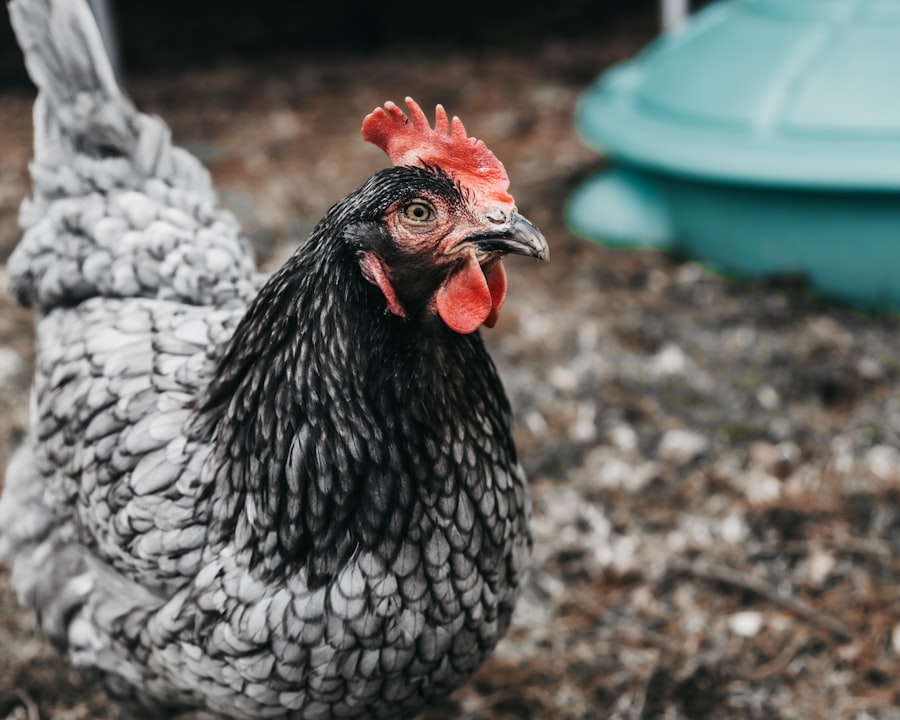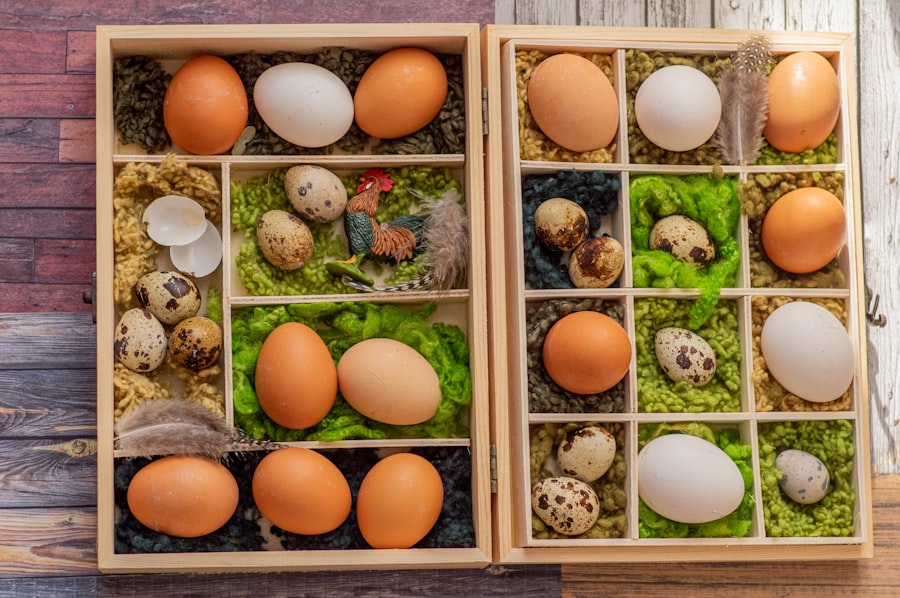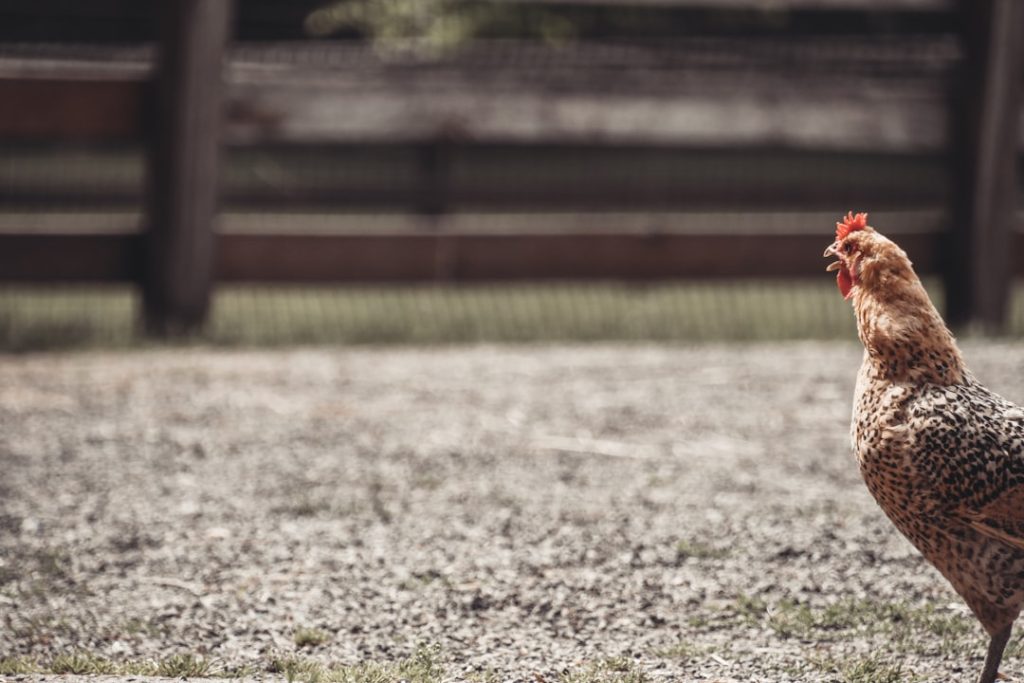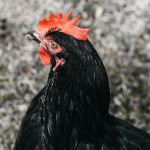Hawks are a significant threat to backyard chickens due to their predatory nature, exceptional vision, and sharp talons. These raptors are known to swoop down and capture small animals, including chickens, as prey. Chicken owners should be aware of signs indicating hawk presence, such as circling birds or those perched in nearby trees.
Hawks are primarily active during daylight hours, making chickens most vulnerable during this time. Understanding hawk behavior and hunting patterns is crucial for protecting poultry flocks. Hawks can cause severe injury or death to chickens with their powerful talons and beaks.
They often strike swiftly, potentially carrying off a chicken before the owner notices. Beyond physical harm, the presence of hawks can induce stress and anxiety in chickens, potentially affecting their health and egg production. Recognizing these dangers is essential for implementing effective protective measures to ensure the safety and well-being of backyard chicken flocks.
Table of Contents
- 1 Creating a Secure Coop: Building a Hawk-Proof Enclosure for Your Chickens
- 2 Utilizing Visual Deterrents: Using Scarecrows and Reflective Objects to Keep Hawks Away
- 3 Implementing Sound Deterrents: Using Noisemakers and Alarms to Scare Off Hawks
- 4 Providing Shelter: Creating Safe Spaces for Your Chickens to Hide from Hawks
- 5 Supervising Free Range Time: Monitoring Your Chickens When They are Outside to Deter Hawks
- 6 Seeking Professional Help: Consulting with Wildlife Experts for Additional Advice and Assistance
- 7 FAQs
- 7.1 What are some effective methods for keeping hawks away from chickens?
- 7.2 What are some natural deterrents for hawks?
- 7.3 Are there any specific breeds of chickens that are more resistant to hawk attacks?
- 7.4 What should I do if I spot a hawk near my chicken coop?
- 7.5 Are there any legal methods for deterring hawks from my property?
Key Takeaways
- Hawks pose a serious threat to chickens and can cause significant harm or even death.
- Building a secure coop with strong fencing and a covered top is essential to protect chickens from hawk attacks.
- Scarecrows, shiny objects, and reflective tape can help deter hawks from approaching the chicken coop.
- Noisemakers and alarms can be effective in scaring off hawks and preventing them from preying on chickens.
- Creating safe hiding spots and shelters within the chicken coop can provide chickens with a safe refuge from hawk attacks.
- Monitoring chickens closely when they are outside and providing supervision can help deter hawks from targeting them.
- Seeking advice and assistance from wildlife experts can provide additional strategies and support in protecting chickens from hawk attacks.
Creating a Secure Coop: Building a Hawk-Proof Enclosure for Your Chickens
Sealing Gaps and Openings
It’s vital to ensure that there are no gaps or openings in the coop that hawks could exploit to gain access to your chickens. Even the smallest opening can be an entry point for a determined hawk.
Reinforcing the Perimeter
Reinforcing the perimeter of the coop with wire mesh or hardware cloth can help deter hawks from attempting to break in. This added layer of protection can give you peace of mind and help keep your chickens safe.
Coop Placement and Layout
In addition to the physical structure of the coop, it’s also important to consider the layout of the surrounding area. Avoid placing the coop in an open area where hawks have a clear line of sight and easy access to your chickens. Instead, position the coop near trees or other tall structures that can provide some cover and protection from aerial attacks.
Utilizing Visual Deterrents: Using Scarecrows and Reflective Objects to Keep Hawks Away

Visual deterrents can be effective in deterring hawks from targeting your chickens. Scarecrows are a classic method of keeping birds at bay, as they create the illusion of a human presence and can startle hawks with their unexpected appearance. Placing scarecrows strategically around your chicken coop and run can help create a sense of unease for hawks and discourage them from getting too close.
Reflective objects, such as shiny tape or CDs, can also be used to deter hawks by creating flashes of light that can startle and disorient them. Hanging these reflective objects around the perimeter of your chicken coop can help create a visual barrier that hawks will be reluctant to approach. Additionally, installing predator eyes decals on windows or other surfaces can create the illusion of being watched, which can make hawks think twice about targeting your chickens.
Utilizing visual deterrents is a non-invasive way to keep hawks away from your chickens, as it does not cause any harm to the birds. By leveraging scarecrows and reflective objects, you can help create a safer environment for your flock and reduce the risk of hawk attacks.
Implementing Sound Deterrents: Using Noisemakers and Alarms to Scare Off Hawks
Sound deterrents can be an effective way to scare off hawks and protect your chickens from potential harm. Noisemakers, such as air horns or whistles, can be used to create loud and unexpected sounds that can startle hawks and deter them from approaching your coop. By setting up these noisemakers around your chicken run and activating them when hawks are spotted, you can help create a hostile environment that hawks will want to avoid.
Alarms can also be used as a sound deterrent to keep hawks at bay. Motion-activated alarms can be installed around your chicken coop and run to detect any approaching hawks and emit a loud sound to scare them off. These alarms can serve as an effective warning system that alerts you to potential threats and helps keep your chickens safe from harm.
Implementing sound deterrents is a proactive approach to protecting your chickens from hawk attacks. By using noisemakers and alarms, you can help create a hostile environment for hawks and reduce the likelihood of them targeting your flock.
Providing Shelter: Creating Safe Spaces for Your Chickens to Hide from Hawks
Creating safe spaces for your chickens to seek shelter is essential for protecting them from hawk attacks. Providing ample cover within the chicken run, such as dense shrubs or bushes, can give your chickens places to hide and take refuge if a hawk is spotted nearby. Additionally, adding structures like wooden pallets or small shelters within the run can provide additional hiding spots for your chickens to escape from potential danger.
In addition to creating safe spaces within the chicken run, it’s also important to provide shelter within the coop itself. Ensuring that the coop has multiple roosting bars at varying heights can give your chickens options for perching and staying out of reach of any potential hawk threats. Adding nesting boxes with secure entrances can also provide additional protection for your chickens while they are inside the coop.
By providing shelter within both the chicken run and coop, you can give your flock the opportunity to seek refuge and stay safe from hawk attacks. Creating safe spaces for your chickens is an important aspect of protecting them from potential harm.
Supervising Free Range Time: Monitoring Your Chickens When They are Outside to Deter Hawks

Direct Supervision: The First Line of Defense
By keeping a watchful eye on your chickens while they are outside, you can quickly intervene if a hawk is spotted nearby and take action to scare it off before any harm is done. Regularly patrolling the area where your chickens roam can help deter hawks from attempting to target them, as they are less likely to strike when human presence is detected.
Additional Lines of Defense
In addition to direct supervision, using livestock guardian animals, such as dogs or geese, can also help deter hawks from targeting your chickens during free range time. These animals can serve as an additional line of defense against potential hawk attacks and help keep your flock safe while they are outside.
Effective Protection Strategies
Supervising free range time is an important part of protecting your chickens from hawk threats. By monitoring your flock closely and utilizing guardian animals, you can help deter hawks from targeting your chickens and reduce the risk of potential harm.
Seeking Professional Help: Consulting with Wildlife Experts for Additional Advice and Assistance
If you are facing persistent hawk threats despite implementing various deterrent strategies, it may be beneficial to seek professional help from wildlife experts. Consulting with professionals who specialize in bird control and wildlife management can provide valuable insight and advice on how to effectively deter hawks from targeting your chickens. Wildlife experts may be able to offer additional strategies and techniques for protecting your flock from hawk attacks, based on their knowledge and experience in dealing with bird predators.
They may also be able to provide assistance in implementing more advanced deterrent methods, such as installing bird netting or using bird of prey decoys to discourage hawks from approaching your property. Seeking professional help can be instrumental in finding effective solutions for keeping hawks away from your chickens. By consulting with wildlife experts, you can gain access to specialized knowledge and resources that can help safeguard your flock from potential harm.
In conclusion, protecting your chickens from hawk attacks requires a multi-faceted approach that includes understanding the threat, creating secure enclosures, utilizing visual and sound deterrents, providing shelter, supervising free range time, and seeking professional assistance when needed. By implementing these strategies, you can help create a safer environment for your flock and reduce the risk of potential harm from hawk predators.
If you’re looking for ways to keep hawks from your chickens, you may also be interested in learning how to turn a shed into a chicken coop. This article from Poultry Wizard provides valuable tips and insights on how to repurpose a shed into a safe and secure home for your feathered friends. Check it out here.
FAQs
What are some effective methods for keeping hawks away from chickens?
Some effective methods for keeping hawks away from chickens include using netting or wire mesh to cover the chicken coop, installing scare devices such as reflective tape or predator decoys, and providing overhead cover for the chickens to hide under.
What are some natural deterrents for hawks?
Some natural deterrents for hawks include planting tall trees or shrubs around the chicken coop to provide cover for the chickens, and allowing the chickens to free-range in areas with dense vegetation where hawks may have difficulty hunting.
Are there any specific breeds of chickens that are more resistant to hawk attacks?
Some chicken breeds, such as the Brahma and the Jersey Giant, are known for their large size and ability to defend themselves against predators, including hawks. However, no chicken breed is completely immune to hawk attacks.
What should I do if I spot a hawk near my chicken coop?
If you spot a hawk near your chicken coop, it’s important to take immediate action to protect your chickens. You can use scare tactics such as making loud noises or waving your arms to scare the hawk away, or you can bring your chickens indoors until the hawk has left the area.
Are there any legal methods for deterring hawks from my property?
In the United States, hawks are protected under the Migratory Bird Treaty Act, which means that it is illegal to harm or kill them without a permit. However, there are legal methods for deterring hawks from your property, such as using scare devices or providing physical barriers to protect your chickens.
Meet Walter, the feathered-friend fanatic of Florida! Nestled in the sunshine state, Walter struts through life with his feathered companions, clucking his way to happiness. With a coop that’s fancier than a five-star hotel, he’s the Don Juan of the chicken world. When he’s not teaching his hens to do the cha-cha, you’ll find him in a heated debate with his prized rooster, Sir Clucks-a-Lot. Walter’s poultry passion is no yolk; he’s the sunny-side-up guy you never knew you needed in your flock of friends!







